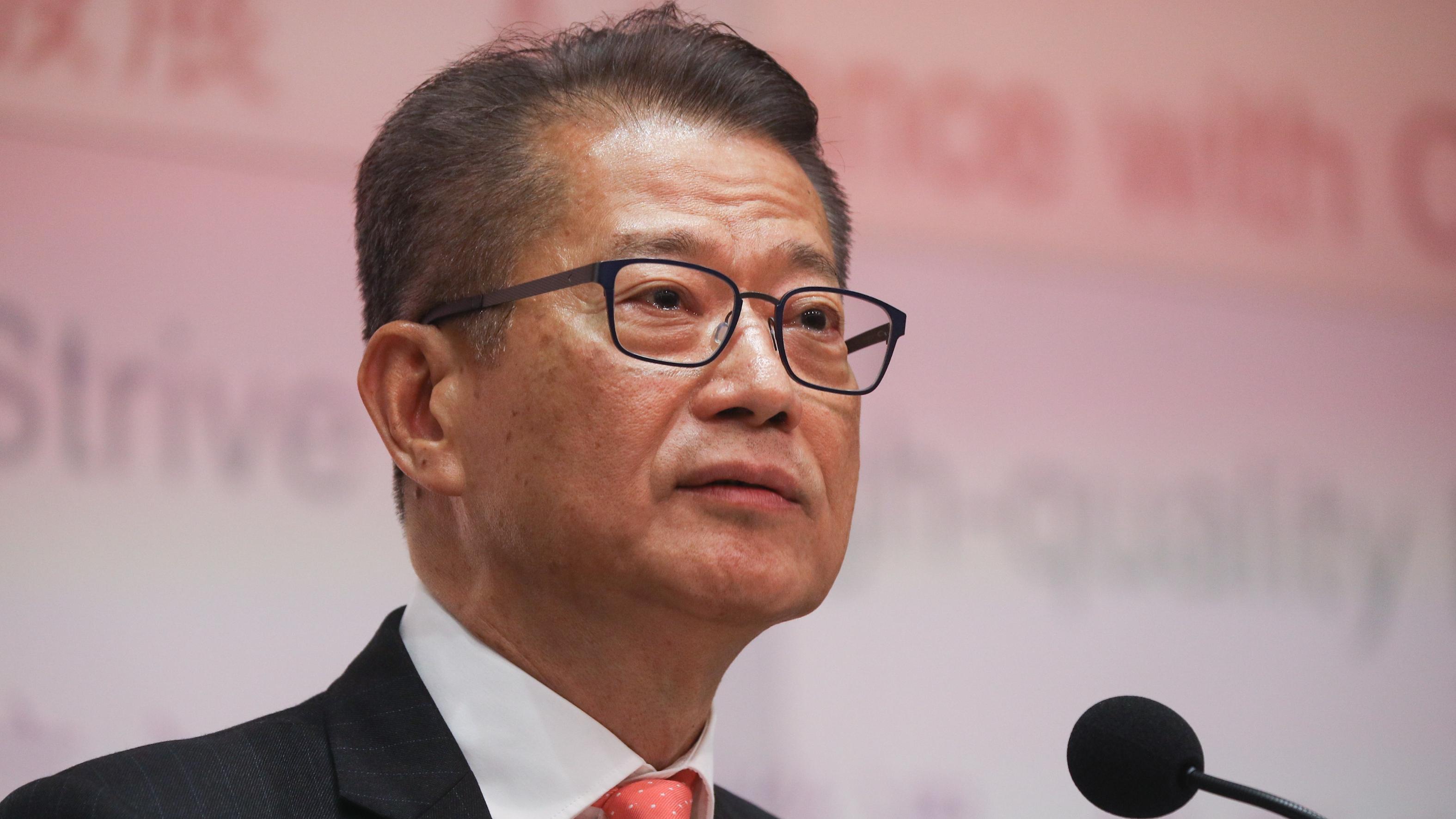 Paul Chan Mo-po, financial secretary of HKSAR, speaks to media about The 2024-2025 Budget at Central Government Office on Feb 28, 2024. (CALVIN NG / CHINA DAILY)
Paul Chan Mo-po, financial secretary of HKSAR, speaks to media about The 2024-2025 Budget at Central Government Office on Feb 28, 2024. (CALVIN NG / CHINA DAILY)
Industry voices praised the initiatives outlined in the 2024-25 Budget for their ability to create a more appealing innovation and technology (I&T) ecosystem in Hong Kong, but they warned that while attracting international enterprises is important, equal attention should be given to supporting local (I&T) companies.
More than 10 strategic enterprises are set to ink partnership agreements with the Office for Attracting Strategic Enterprises in March, as announced by Financial Secretary Paul Chan Mo-po while unveiling the budget on Wednesday. These firms have either confirmed or are preparing to establish a presence or expand their business operations in Hong Kong.
These forward-looking measures are expected to attract more talent and capital to establish a presence in Hong Kong, instilling a strong confidence in the city’s future development
Together with the first batch of 30 enterprises, it is expected that they will bring a total investment of HK$40 billion ($5.11 billion) to Hong Kong and create 13,000 job opportunities for the city.
READ MORE: 12 supportive ways for I&T unveiled, industry encouraged
“Their presence in Hong Kong will attract upstream, midstream and downstream partners from their industry chains, promoting our innovation and technology sector’s vibrant development,” the finance chief said.
“Innovation and technology continues to be an important way forward for Hong Kong to reposition its economy amidst a series of unprecedented global challenges,” Kenneth Wong, tax partner of PwC Hong Kong, said.
In a bid to further enhance the city’s I&T ecosystem and bolster its appeal to both mainland and international enterprises, the budget introduced a package of supportive measures in promising sectors, such as artificial intelligence (AI), life and health technology, and Hong Kong-Shenzhen cooperation.
These forward-looking measures are expected to attract more talent and capital to establish a presence in Hong Kong, instilling a strong confidence in the city’s future development, Nancy Ip, president of the Hong Kong University of Science and Technology, said.
According to the budget, the initial facilities of the AI Supercomputing Center in Cyberport — Hong Kong’s digital technology flagship and entrepreneurship incubator — will be put into operation as early as this year, with projections indicating that by early 2026, it will have the computational power capable of processing nearly 10 billion images per hour.
To support the utilization of the center’s computing capabilities, the HKSAR government will allocate HK$3 billion to provide funding for local universities, research institutions and businesses.
The institute is projected to provide one-stop support for domestic and international pharmaceutical and medical device companies conducting clinical trials in Hong Kong
The government will make use of HK$6 billion from the last budget — which was earmarked for the development of life and health technology — to support universities in establishing dedicated research institutes.
This move aims to promote technology transfer and attract leading talents and research teams from around the world to Hong Kong, Chan said.
In addition, the SAR will also enhance its collaboration with the mainland in this field, with the plans to establish the Greater Bay Area International Clinical Trial Institute in the Hetao Shenzhen-Hong Kong Science and Technology Innovation Co-operation Zone this year.
READ MORE: HK offers up to HK$45m in I&T funding for companies
The institute is projected to provide one-stop support for domestic and international pharmaceutical and medical device companies conducting clinical trials in Hong Kong.
However, in addition to leading enterprises from outside Hong Kong, local firms also require assistance from the government, said Victor Kwok, assistant research director of Our Hong Kong Foundation.
Kwok recommended the establishment of an “angel fund” by the government-owned Hong Kong Investment Corp to invest in local startups in key industries, so as to fuel the development of a flourishing startup ecosystem.
Contact the writer at irisli@chinadailyhk.com


